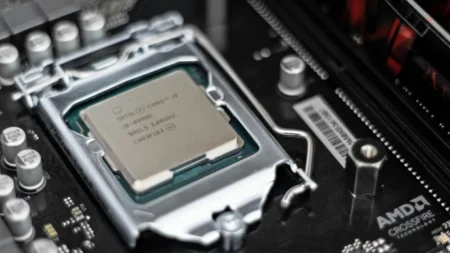Have you ever wondered how businesses keep track of their inventory, pricing, and transactions with such efficiency? The answer lies in the universal barcode scanner. But what exactly is a barcode scanner, and how does it function in today’s fast-paced retail environment?
A barcode scanner is an essential tool that helps businesses decode and read the information contained within barcodes. These barcodes, found on nearly every product, store crucial data such as product identification, price, and inventory details. By scanning the barcode, businesses can easily and accurately manage their inventory, streamline the checkout process, and monitor sales trends.
So, how do you choose the right barcode scanner for your business? Well, this article explores some essential tips to help you buy a barcode scanner that meets your unique business needs.
Identify the Barcode Type
You must familiarize yourself with the different barcode types out there. Barcodes come in various formats, including the widely used 1D (one-dimensional) barcodes like UPC and EAN and 2D (two-dimensional) barcodes such as QR codes and Data Matrix. 1D scanners are linear scanners that read vertical lines, while 2d scanners can read different shapes, including dots and squares.
Understanding the barcode type your business uses is crucial, as it directly impacts the kind of code scanner you’ll need. The right code scanner will effortlessly read and decode the specific barcode formats your business deals with daily.
By identifying the barcode type in advance, you can streamline the selection process and ensure that your chosen scanner caters to your specific requirements. For instance, if your business uses 2D barcodes, investing in a versatile code scanner will provide you with the efficiency and reliability needed to keep your operations running smoothly.
Determine Scanning Distance Requirements
Determining the scanning distance requirements is crucial when selecting the ideal barcode scanner for your business. The scanning distance determines how far away a scanner can accurately read a barcode, directly impacting the efficiency of your operations.
First, assess the working environment where your workers will use the scanner. Are your employees scanning items from a fixed location, or must they reach for products on high shelves? Consider the distance between the scanner and the barcodes in your specific setting.
Selecting a scanner with the appropriate scanning range will ensure your employees can quickly and accurately capture barcode data, minimizing strain and maximizing productivity. Opt for an adjustable or flexible range scanner if your business has diverse scanning distance needs.
Consider Wired vs. Wireless Options
Choosing between a wired and wireless model can significantly impact your daily operations, so let us explore the pros and cons of each option.
Wired barcode scanners, connected directly to your computer or point-of-sale (POS) system via cables, offer a reliable and consistent scanning experience. They’re typically more affordable and don’t require charging, making them a practical choice for businesses on a budget.
On the other hand, wireless barcode scanners provide increased flexibility and mobility. They’re ideal for businesses with large warehouses or stores where employees need to move around freely. While wireless scanners can be more expensive and require regular charging, their convenience and efficiency often justify the investment.
Consider your business’s specific requirements and budget when deciding between wired and wireless barcode scanners.
Check Compatibility with Your POS System
When selecting a barcode scanner for your business, checking its compatibility with your Point of Sale (POS) system is crucial. A seamless integration between the scanner and your POS system ensures your business operations run smoothly and efficiently.
You can ensure your new barcode scanner is compatible with your existing POS system by determining the type of connection your POS system requires. Common options include USB, serial, and Bluetooth connections. Next, consider the software used by your POS system. Does the barcode scanner’s software support your POS software? Can the two work harmoniously, or will additional updates or integrations be necessary?
Taking the time to evaluate compatibility carefully can save you from potential headaches down the line.
Assess Durability
Durable barcode scanners are built to endure being dropped, spilled on, and exposed to dust or moisture. To determine the level of ruggedness, check the device’s drop an IP (Ingress Protection) ratings. A higher drop rating means the scanner can withstand falls from greater heights, while a higher IP rating signifies better protection against dust and water.
Investing in a durable barcode scanner can save on repair or replacement costs and minimize downtime in your operations. So, take the time to evaluate the scanner’s durability and opt for one that matches the demands of your work environment.
Review Battery Life for Wireless Models
When considering a wireless barcode scanner for your business, don’t overlook the importance of battery life. A scanner with a longer-lasting battery ensures uninterrupted operation, boosting productivity and reducing downtime. So, how can you gauge the battery life of a wireless model?
Begin by comparing various scanners’ battery capacities, measured in milliampere-hours (mAh). Higher mAh ratings generally translate to longer usage times between charges. Additionally, look for scanners with power-saving features, such as sleep modes or auto-off functions, which help conserve battery life.
Compare Warranties and Support Services
When choosing a scanner for your business, comparing warranties and support services provided by different manufacturers is essential. A robust warranty ensures that your investment remains protected in case of defects or malfunctions. While comparing warranties, pay close attention to the coverage period and terms and conditions. Longer coverage often signifies confidence in the product’s quality and durability.
Support services are vital in resolving any technical issues you might face. Look for manufacturers that offer comprehensive customer support, including phone, email, and live chat options. Quick response times and knowledgeable support staff can make all the difference when your business needs a timely solution.
Conclusion
Selecting the right barcode scanner for your business can significantly impact your operations’ efficiency and accuracy. By carefully considering factors such as barcode types, scanning distance, wired or wireless options, compatibility, durability, battery life, and warranty and support services, you can make an informed decision that caters to your specific needs.
Remember, investing in the right barcode scanner streamlines your inventory management and checkout processes, boosts productivity, and enhances the overall customer experience. So, take the time to evaluate your options and choose a barcode scanner that sets your business up for success in the long run.
Discover more from Technical Master - Gadgets Reviews, Guides and Gaming News
Subscribe to get the latest posts sent to your email.








